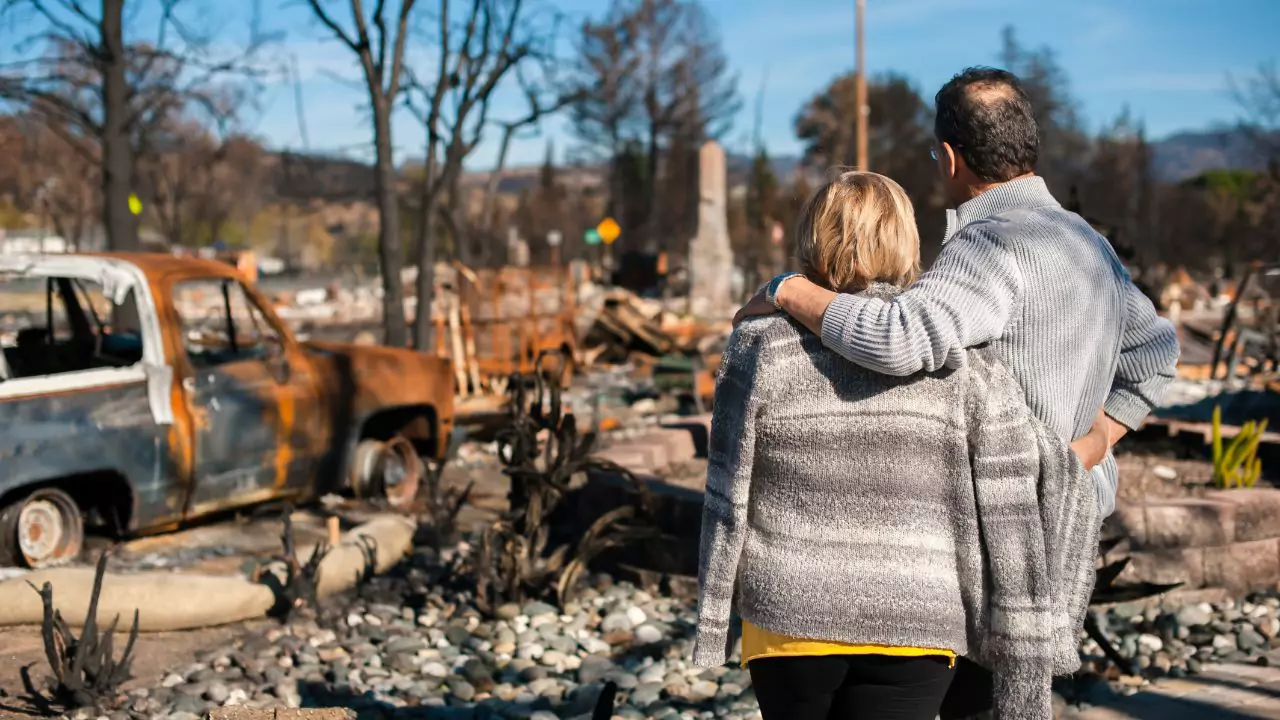Yes, house insurance typically covers damage caused by many natural disasters. However, it’s important to understand what types of disasters are covered and the specific limitations associated with each coverage.
What Disasters Are Typically Covered by Homeowners Insurance?
Here are some of the most common natural disasters that are typically covered by homeowners insurance:
- Tornadoes: These violent storms can cause significant damage to homes and other property. Homeowners insurance will typically cover the cost of repairing or rebuilding your home after a tornado.
- Hurricanes: These powerful storms can bring strong winds, heavy rain, and storm surge. Homeowners’ insurance will typically cover damage caused by these elements, though flood damage may be excluded.
- Fire: Fires can be caused by a variety of factors, including lightning, electrical wiring problems, and arson. Homeowners insurance will typically cover the cost of repairing or rebuilding your home after a fire.
- Explosion: Explosions can be caused by a variety of factors, including gas leaks, propane tanks, and fireworks. Homeowners insurance will typically cover the cost of repairing or rebuilding your home after an explosion.
- Lightning: Lightning can cause damage to your home’s electrical system, roof, and siding. Homeowners insurance will typically cover the cost of repairing or replacing these items.
- Volcanoes: Volcanoes can cause damage to your home from lava, ash, and mudslides. Homeowners insurance will typically cover the cost of repairing or rebuilding your home after a volcanic eruption.
- Extreme Cold: Extreme cold can cause damage to your home’s plumbing, pipes, and foundation. Homeowners insurance will typically cover the cost of repairing or replacing these items.
What Disasters Are NOT Covered by Homeowners Insurance?
While homeowners insurance covers many natural disasters, there are some important exceptions. Here are some of the most common natural disasters that are not typically covered by homeowners insurance:
- Floods: Flood damage is typically not covered by homeowners insurance. You will need to purchase a separate flood insurance policy to protect your home from floods.
- Earthquakes: Earthquake damage is typically not covered by homeowners insurance. You will need to purchase a separate earthquake insurance policy to protect your home from earthquakes.
- Tsunamis: Tsunami damage is typically not covered by homeowners insurance. Tsunamis are often caused by earthquakes, and earthquake damage is not typically covered by homeowners insurance.
- Nuclear events: Nuclear events are not covered by homeowners insurance. Nuclear events are typically covered by government programs.
Assessing and Managing Your Coverage Before and After a Natural Disaster
It is important to assess your coverage before a natural disaster strikes. You should review your homeowner’s insurance policy carefully to understand what is covered and what is not. You should also make sure that your coverage limits are adequate to cover the cost of rebuilding your home.
After a natural disaster, you should contact your homeowner’s insurance company immediately. Your insurance company will be able to guide you through the claims process and help you get the compensation you deserve.
Here are some additional tips for assessing and managing your coverage before and after a natural disaster:
- Document your property: Take photos and videos of your home and belongings before a natural disaster strikes. This will help you document the damage and file a claim with your insurance company.
- Create a home inventory: Create a list of your belongings and their estimated value. This will help you file a claim for your belongings if they are damaged or destroyed.
- Stay informed: Monitor weather reports and warnings from local authorities. This will help you stay safe and prepare for potential disasters.
- Have a plan: Develop a plan for what you will do in case of a natural disaster. This plan should include how you will evacuate your home, where you will go, and how you will contact family and friends.
By taking these steps, you can help protect yourself and your property from the financial impact of a natural disaster.





